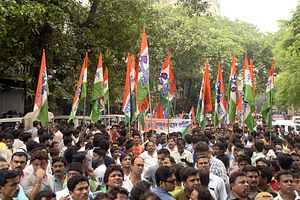This month, millions of voters in India are casting their ballots over multiple days for state-wide elections. The results of these elections, which will elevate state legislators to assemblies in the eastern Indian states of West Bengal and Assam, will have a bearing on India’s nationwide politics. The two states between them account for 120 million people and both represent important political proving grounds for India’s ruling Bharatiya Janata Party (BJP). The BJP, though dominant nationally after being elected with a parliamentary mandate that was unseen in three decades, has struggled to gain traction in eastern India, where regional and left-leaning parties have succeeded.
As Akhilesh Pillalamarri discussed recently, due to the peculiarities of how national legislators are elected to the upper house of India’s bicameral parliament, state elections remain particularly important for the BJP. State and territorial legislatures elect representatives to the Rajya Sabha. The right-leaning BJP commands a majority in the Lok Sabha, the lower house, but not in the Rajya Sabha, the upper house. Without a majority in the upper house, the BJP’s agenda of center-right economic reform is untenable as its legislative agenda would be subject to compromise and revision by competing opposition parties.
Currently, out of 245 total legislators in the Rajya Sabha, the BJP and its coalition partners hold just 64 seats. The United Progressive Alliance coalition of center-left parties, led by the Indian National Congress, command 71 seats. The remaining Rajya Sabha seats are occupied by several non-aligned regional and small parties. In the Lok Sabha, the 2014 general elections saw the BJP acquire the largest majority of any party in the Indian lower house since 1984. The BJP has enough seats in the Lok Sabha to govern without the support of other national parties.
The contest in Assam represents a more evenly balanced race. Congress and the BJP have been neck-and-neck in the polls, with the latter eking out an edge in recent days. With Monday representing the final day of voting, results in Assam should be known soon. Tensions between the central government and Assam’s state government over illegal immigration from Bangladesh into the state has become a hot-button political issue. Tarun Gogoi, the Congress chief minister of Assam, criticized Prime Minister Narendra Modi for insufficiently cracking down on illegal immigration. Results in Assam will be announced on May 19, 2016.
After November’s disappointing results in Bihar’s legislative assembly elections, where a coalition of regional parties led by Nitish Kumar trounced the prime minister’s party, the BJP will be looking for a strong showing in Assam. Though Assam alone will be inadequate to turn the BJP’s fortunes in the Rajya Sabha around, it will restore the political capital lost after the results in Bihar.

































